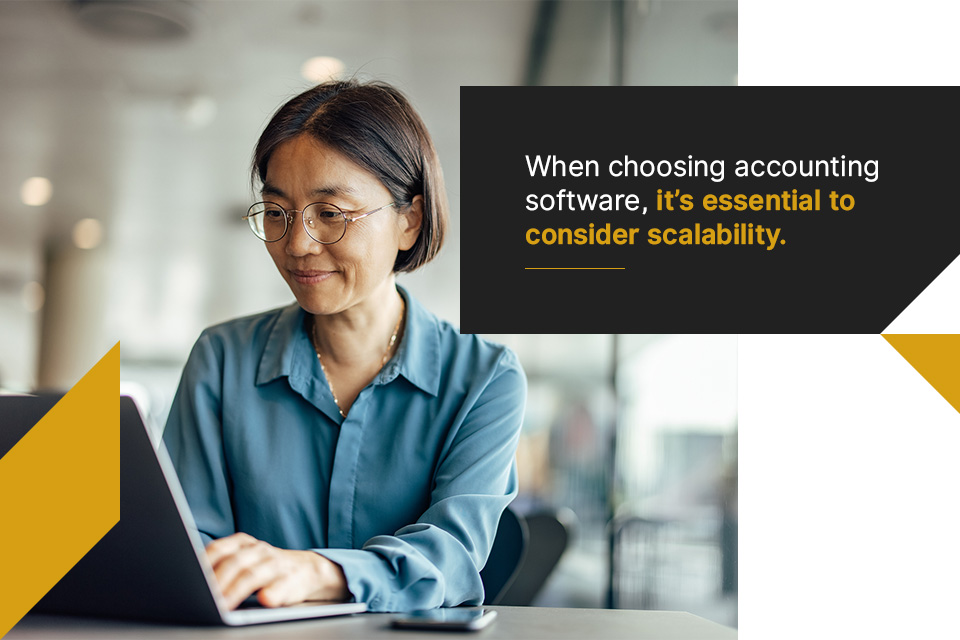What Is Accounting Software?

Do you want to optimize your business’s financial management with accounting software? Learn how to determine your business’ accounting needs and choose the best tool. We at Marshall Jones have compiled a list of essential tips to help you navigate the process! Select the best accounting software solution for your specific needs.
What Is Accounting Software?
Accounting software is a program that can perform various accounting and bookkeeping tasks. Although there are different types of accounting software, most can be used to record financial transactions, automate accounting tasks and generate reports. Some accounting software also offers additional features such as invoicing, payroll and tax management. This can help businesses keep track of their financial health.
Benefits of Accounting Software for Small Businesses
Small to medium-sized businesses (SMBs) can reap the benefits of accounting software. Here are just a few advantages to keep in mind:
- Save valuable time: With any new software you implement, there will be an initial setup period. However, once completed, you can save hours of work previously dedicated to time-consuming and manual tasks. Take financial data entries, for example. Instead of manually downloading CSV files and entering data into a spreadsheet, accounting software can automatically — and accurately — pull the data for you.
- Keep financial data organized: Spreadsheets are okay, but there are smarter ways to keep your financial data organized. Accounting software simplifies things by consolidating financial data from various sources into a single platform — organizing invoices, receipts, accounts and other records. It gives you a comprehensive view of your business’s financial performance — all synced into one location.
- Gain financial insights: As a business owner, you’ll want to periodically check your business’s financial growth to make data-driven decisions. With accounting software, you can instantly generate crucial financial reports with a click of a button. Some platforms even have built-in automatic reporting capabilities — saving you more time. Also, with report customization abilities, you can organize and categorize your financial reports according to locations, departments or projects.
Examples of Industries Using Accounting Software
The type of accounting software you choose depends on your specific industry and business goals. Here are a few examples of how different industries use accounting software:
- Construction: The construction industry may want to use accounting software for project-based financial reporting on the go.
- Manufacturing: Those in manufacturing may use accounting software with robust inventory management features to manage purchase orders, track inventory levels or create bills of materials.
- Real estate: In real estate, accounting software can send invoices, accept online payments, track expenses or figure tax deductions.
- Religious organizations: Even churches can use accounting software to help manage budgets, donations or finances and comply with any tax-exempt regulations.
Steps to Choosing an Accounting Software
Whichever industry you’re in, there is a bookkeeping software platform built just for you. So, where do you start? Use the following steps as a starting point.
- Assess Your Business Requirements
First, before diving into the vast array of accounting software options, it’s important to assess your business requirements. Consider the size of your company, the complexity of your financial operations, and any specific features or functionalities you may need. This evaluation will provide you with a clear understanding of what you expect from your accounting software, helping you narrow down your options.
- Consider Scalability and Growth
Next, as an Atlanta business owner, you undoubtedly have plans for growth and expansion. When choosing accounting software, it’s essential to consider scalability. Select a solution that can accommodate your future needs, such as increased transaction volume, additional users, and advanced reporting capabilities. Investing in scalable software ensures that you won’t outgrow your accounting system as your business grows.

- Evaluate User-Friendliness
Accounting software is meant to simplify your financial management processes, so choosing a user-friendly solution is crucial.. Look for software with an intuitive interface and easy navigation. Consider the learning curve for your team members and ensure that the software provides adequate training and support resources. A user-friendly accounting software solution will save you time and reduce the risk of errors in your financial tasks.
- Ensure Compatibility and Integration
Your accounting software needs to seamlessly integrate with other business systems you use. Consider the software’s compatibility with your existing tools such as payroll systems, inventory management software, and customer relationship management (CRM) platforms. Integration between systems eliminates the need for manual data entry, reduces errors, and improves overall efficiency in your Atlanta business operations.
- Security and Data Protection
Financial data is highly sensitive and requires robust security measures. When evaluating accounting software options, prioritize security features such as encryption, user access controls, and data backup capabilities. Ensure that the software complies with relevant data protection regulations to safeguard your business’s financial information and maintain compliance with industry standards.
- Pricing and Cost Considerations
Accounting software has varying pricing structures, including upfront fees, monthly subscriptions, or per-user pricing. Consider the initial investment and any additional costs for upgrades, customer support and training. Choose a software solution that aligns with your budget while providing the necessary features and functionality.
- Seek Recommendations and Read Reviews
One of the best ways to gauge the quality and suitability of an accounting program is to seek recommendations from fellow business owners in Atlanta. Reach out to your professional network, industry associations or accounting firms like Marshall Jones for their insights and recommendations. Additionally, read online reviews and ratings to gather feedback from users with firsthand experience with the software you are considering.
The Importance of Software Consulting
As an SMB, you’ll want to commit as much time as possible to important business projects, generate new ideas or make data-driven decisions. Accounting software already offers numerous benefits to give you the productivity boost you need. However, adopting a new software can be challenging — that’s where software consulting comes in.
Software consulting involves a third party analyzing a business’s software needs and advising software and technology investments based on these needs. Here are some other things that software consultants can bring to the table:
- Give you insight into software practices
- Help you prioritize software goals and objectives
- Keep you up to date with new software and technology developments
- Save you time and money on software
- Teach you how to properly use technology to your advantage
Consult With Marshall Jones — Your Trusted CPA and Advisor
Choosing software is a crucial decision for your business, and consulting with accounting professionals can provide valuable insight. As trusted advisors, we at Marshall Jones understand businesses’ unique challenges.
Our experienced CPAs and advisors are well-versed in various software solutions and can offer expert advice tailored to your business needs. We stay up to date with the latest software advancements and industry trends so that we can provide valuable insights and recommendations tailored to each client’s requirements. Our team is ready to guide you through the selection process, provide expert advice and ensure a seamless implementation.
Empower your Atlanta business with the right accounting software solution and take control of your finances like never before. Contact us online today to discuss your accounting software needs.

